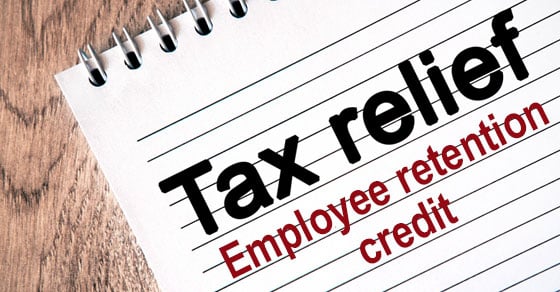New COVID-19 law makes favorable changes to “qualified improvement property”

The law providing relief due to the coronavirus (COVID-19) pandemic contains a beneficial change in the tax rules for many improvements to interior parts of nonresidential buildings. This is referred to as qualified improvement property (QIP). You may recall that under the Tax Cuts and Jobs Act (TCJA), any QIP placed in service after December […]
Answers to questions you may have about Economic Impact Payments

Millions of eligible Americans have already received their Economic Impact Payments (EIPs) via direct deposit or paper checks, according to the IRS. Others are still waiting. The payments are part of the Coronavirus Aid, Relief, and Economic Security (CARES) Act. Here are some answers to questions you may have about EIPs. Who’s eligible to get […]
COVID-19: IRS announces more relief and details

In the midst of the coronavirus (COVID-19) pandemic, Americans are focusing on their health and financial well-being. To help with the impact facing many people, the government has provided a range of relief. Here are some new announcements made by the IRS. More deadlines extended As you probably know, the IRS postponed the due dates […]
Relief from not making employment tax deposits due to COVID-19 tax credits

The IRS has issued guidance providing relief from failure to make employment tax deposits for employers that are entitled to the refundable tax credits provided under two laws passed in response to the coronavirus (COVID-19) pandemic. The two laws are the Families First Coronavirus Response Act, which was signed on March 18, 2020, and the […]
CARES ACT changes retirement plan and charitable contribution rules

As we all try to keep ourselves, our loved ones, and our communities safe from the coronavirus (COVID-19) pandemic, you may be wondering about some of the recent tax changes that were part of a tax law passed on March 27. The Coronavirus Aid, Relief, and Economic Security (CARES) Act contains a variety of relief, […]
Answers to questions about the CARES Act employee retention tax credit

The recently enacted Coronavirus Aid, Relief, and Economic Security (CARES) Act provides a refundable payroll tax credit for 50% of wages paid by eligible employers to certain employees during the COVID-19 pandemic. The employee retention credit is available to employers, including nonprofit organizations, with operations that have been fully or partially suspended as a result […]
Just launched: The SBA’s Paycheck Protection Program

To stem the tide of joblessness caused by the coronavirus (COVID-19) outbreak, the Small Business Administration (SBA) has officially launched the Paycheck Protection Program (PPP). The program’s stated objective is “to provide a direct incentive for small businesses to keep their workers on the payroll.” What does the program offer? The PPP was authorized under […]
The new COVID-19 law provides businesses with more relief

On March 27, another coronavirus (COVID-19) related bill was signed into law, which provides extensive relief for businesses and employers. Here are some of the tax-related provisions in the Coronavirus Aid, Relief, and Economic Security Act (CARES Act). Employee retention credit The new law provides a refundable payroll tax credit for 50% of wages paid […]
Cash payments and tax relief for individuals in new law

A new law signed on March 27 provides a variety of tax and financial relief measures to help Americans during the coronavirus (COVID-19) pandemic. This article explains some of the tax relief for individuals in the Coronavirus Aid, Relief, and Economic Security (CARES) Act. Individual cash payments Under the new law, an eligible individual will […]
CARES Act – BUSINESS LOANS AVAILABLE – Covid-19

As you probably know, Congress passed, and President Trump signed into law on March 27, 2020, the Coronavirus Aid, Relief, and Economic Security Act (“CARES Act” or “Act”). Despite just being passed, the CARES Act has been in the public eye for the past couple of weeks and has been referred to as “Phase III” […]

